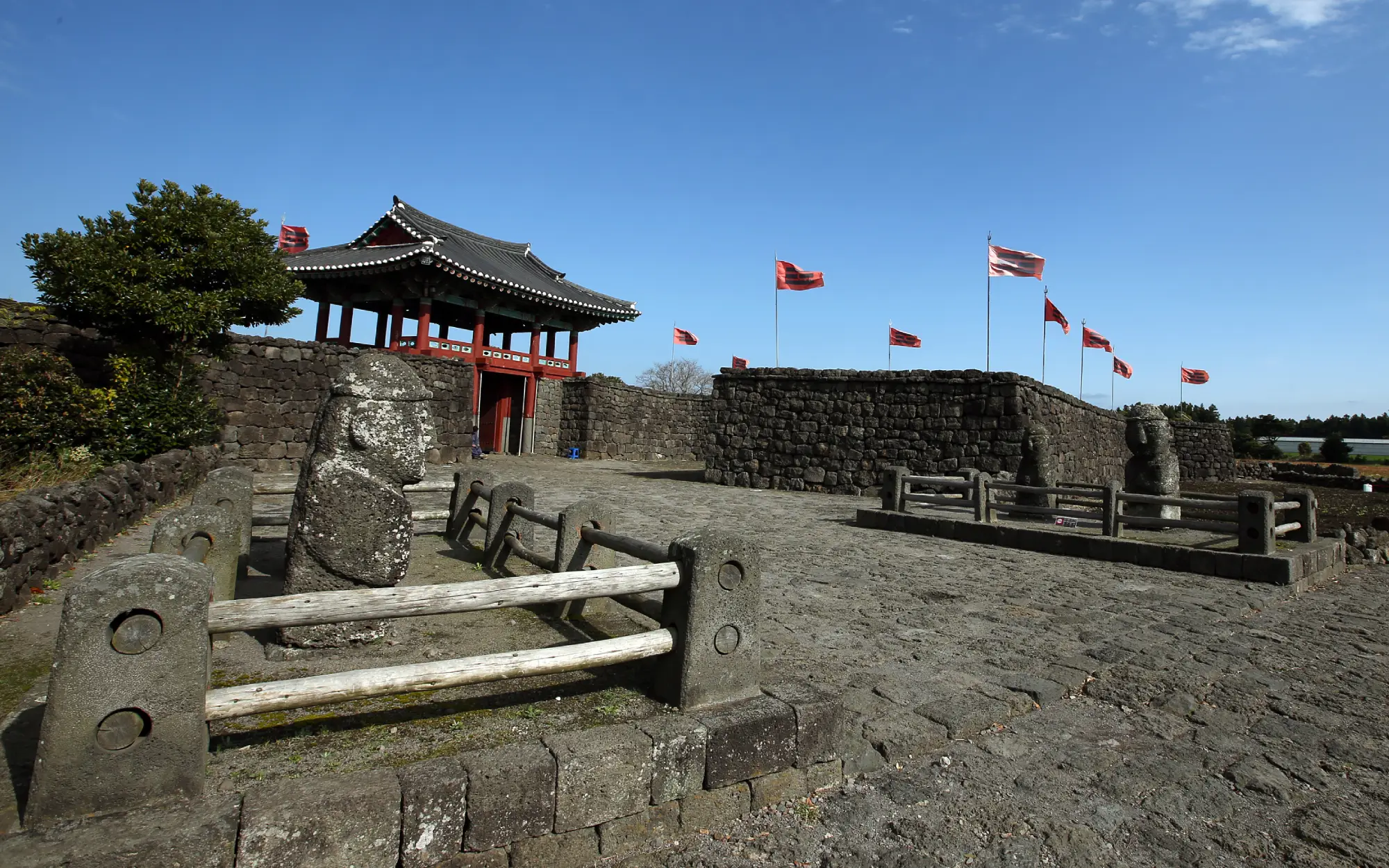
The magical volcanic island of Jeju, South Korea's treasure trove
Jeju Island, South Korea's largest island, is a place of extraordinary natural beauty and cultural depth. Designated as a UNESCO World Heritage Site, it offers a diverse landscape formed by volcanic activity, with lush forests, pristine beaches, and a unique island culture. Jeju is not just a popular tourist destination but also a symbol of the harmonious coexistence between nature and human civilization.
At the heart of the island stands Hallasan Mountain, South Korea’s highest peak. This dormant volcano, with its diverse ecosystems and scenic hiking trails, is a haven for nature enthusiasts.
Jeju’s lava tubes are among the world's finest and most extensive. The Manjanggul Lava Tube, in particular, is a mesmerizing subterranean world, showcasing the island’s volcanic origins.
Jeju's coastline is dotted with natural wonders, including the Jusangjeolli Cliff, a stunning formation of hexagonal rock pillars, and Cheonjeyeon Waterfall, known as the "Pond of God”.
Jeju Island's varied habitats, from mountain forests to coastal wetlands, support a rich array of flora and fauna. This biodiversity is a testament to the island's ecological significance and the careful balance maintained between development and conservation.
The haenyeo, female divers renowned for their ability to free-dive for seafood, are a symbol of Jeju’s matriarchal society. Their traditions and sustainable fishing practices have been recognized by UNESCO as an Intangible Cultural Heritage of Humanity.
Folk villages like Seongeup showcase traditional Jeju architecture, with thatched roofs and stone walls. These villages are living museums, preserving the island’s customs and way of life.
Jeju's culture is rich in myths and legends, with many sites on the island, like the Jeju Stone Park, being linked to intriguing stories and folklore.
Jeju's cuisine is as unique as its landscape, featuring fresh seafood, black pork, and green tea. Local dishes, often simple and seasoned to enhance the natural flavors, provide a culinary journey as diverse as the island itself.
Jeju offers numerous trails for hiking and trekking, ranging from the challenging ascent of Hallasan Mountain to leisurely coastal walks along the Olle Trails.
Jeju Island, a volcanic island off the southern coast of South Korea, captivates visitors with its unique natural landscapes, from the majestic Hallasan Mountain to the mysterious lava tubes, and a rich cultural tapestry woven from myths, legends, and a distinct matriarchal society.

Stone pillars of Jusangjeolli cliff.
The island’s clear waters are ideal for water sports, including scuba diving, snorkeling, and surfing. The beaches, with their soft sands and crystal-clear waters, are perfect for relaxation and recreation.
Jeju is a leader in eco-tourism, with a commitment to preserving its natural environment. Sustainable practices are encouraged, from eco-friendly accommodations to conservation projects protecting the island's natural habitats.
Jeju is home to ancient temples like Yakcheonsa, which offer a glimpse into the island’s spiritual heritage. These temples, set against the backdrop of Jeju's natural beauty, provide a serene and contemplative environment.
The island also has a poignant history related to World War II and the Korean War. Sites like the Jeju April 3 Peace Park commemorate the tragic events of Jeju's past, serving as reminders of the importance of peace and reconciliation.
Jeju's vibrant arts scene is reflected in its museums and galleries, showcasing both traditional and contemporary art. The island's festivals, celebrating everything from cherry blossoms to the haenyeo culture, are vibrant displays of Jeju’s traditions and modernity.
Jeju is well-equipped to handle the influx of tourists, with a range of accommodations, from luxury resorts to cozy guesthouses. The island is easily accessible by air and sea, with an international airport and ferry services connecting it to the mainland.
Despite its natural beauty, Jeju faces environmental challenges, including over-tourism and ecological degradation. Efforts are underway to address these issues, ensuring that Jeju's natural and cultural heritage is preserved for future generations.
The island serves as an outdoor classroom, offering educational opportunities in geology, ecology, and cultural studies. Research and educational centers on the island provide valuable insights into Jeju's unique environment and history.
Jeju Island is a microcosm of South Korea’s natural beauty and cultural richness. It offers a harmonious blend of scenic landscapes, a unique ecosystem, rich cultural heritage, and a commitment to sustainability. A visit to Jeju is not just a getaway but an immersive experience into a world where nature’s majesty and human resilience coexist in a delicate balance, creating a destination that is both enchanting and enlightening.
Welcome to South Korea!
Share this Sight with: